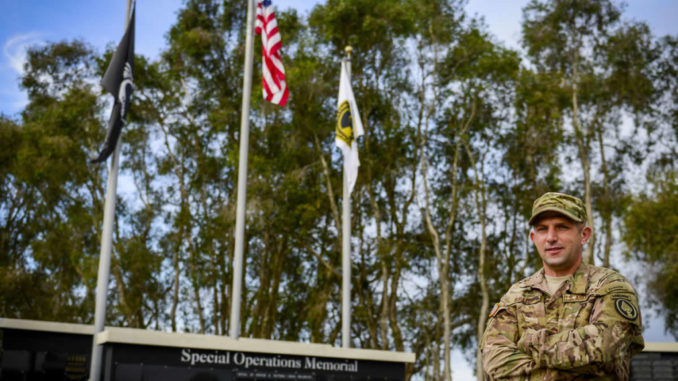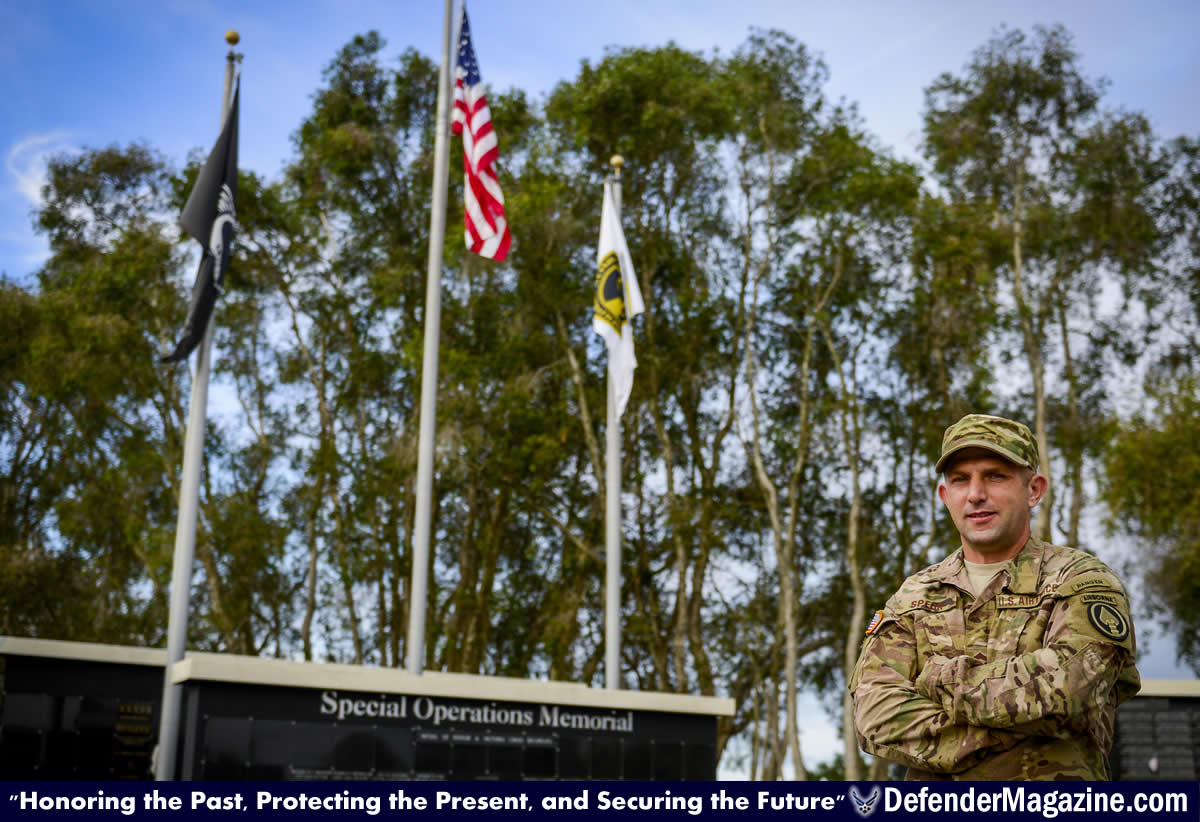
05/23/2016 – MACDILL AIR FORCE BASE, Fla. (AFNS) — For more than two months, Ranger students train to exhaustion. They push the limits of their bodies, minds and souls, and on average, one in three candidates makes it through the grueling course.
The average U.S. Army Ranger School student is in the rank of E-4 through E-6 on the enlisted side and O-1 through O-3 for the officers. Most are between 19 and 27 years old, and only about 21 Airmen graduate each year.
Then there are candidates like 39-year-old Chief Master Sgt. William Speck, who in April, became the first Air Force chief master sergeant to graduate from Ranger School.
“I always had aspirations of attending Ranger School, back when I was a much younger security forces member in the mid-90s,” Speck said. “However, the opportunity never presented itself, that is, until about six months ago when I got the go-ahead to attend. At the age of 39, the desire was still strong, but at this stage of my career it wasn’t just for the thrill-seeking part that comes with the training, it was more to gain a better understanding of the Ranger mission set.”
The Dayton, Texas, native is currently serving as the U.S. Special Operations Command’s J6 operations superintendent where he supports the Rangers on a daily basis with their communications requirements.
“I had the privilege prior to Ranger School to fill in as the deployed regimental J6 sergeant major, where I learned and experienced a great deal, to include picking up on some of the communication challenges the Rangers are faced with on the tactical edge,” Speck said. “Although the deployment was a success, I felt it was important in my position to gain a better understanding of the dynamics and experience firsthand what it’s like to be a Ranger, so I jumped on the opportunity to go to Ranger School and make my lifelong dream a reality.”
Speck started Ranger School weighing 194 pounds; by graduation, he weighed 155. Out of 360 students, he was one of only 90 who graduated. The weight loss resulted from the daunting physical aspects of the course, but the real challenge was mental, caused by sleep deprivation and constant hunger.
“I thought the physical piece would be the toughest, but it was more of a mental hurdle for me. The long walks, especially at nighttime, were really challenging,” Speck said. “We only slept 15 to 30 minutes a night and we were starving because we were burning way more calories than we were consuming, and then having to walk 7 or 12 kilometers a night in the steep mountains of Dahlonega, Georgia, and the swamps of Florida, carrying 60 to 90 pound ruck strapped to our backs was really mentally challenging. Being tired and hungry, there were times where I really had to go to my happy place. I had to think there was an end to everything, and the only thing the RIs (Ranger instructors) couldn’t stop was time.”
According to Speck, the Ranger School gives participants a complete sensory overload and can really overpower them.
“If you let it, the whole course can overwhelm you. I had to approach the course one event at a time. Whether it was the Darby Obstacle Course to the land navigation course, 5-mile run or the 12-mile ruck, (my mindset was) survive today and make tomorrow,” the chief said. “I had doubts everyday whether I would make it through. I had a saying, ‘I’ll quit tomorrow.’ Everybody who goes through that course second-guesses themselves. I’m an older guy and I was praying every day that my body would hold up.”
The Ranger School is designed as a team concept where no one individual can make it through the course alone.
“They have a saying, ‘You don’t earn your Ranger tab; your buddies earn your Ranger tab.’ That is a 100 percent truth. It’s a team event. Everybody has a role, and if one person fails in their role, then the team fails,” Speck said.
Speck said the most valuable lesson he learned from Ranger School was to re-examine the leader and follower roles.
“As an E-9 with 21 years of service, the leadership piece came naturally for me, but my biggest takeaway was how to be a better follower,” Speck said. “As we all know, it’s just as important to be a good follower as it is to be a good leader, and sometimes as senior enlisted leaders, we forget that.”
Being a chief, and now wearing the Ranger tab, Speck said he wants others to learn from his experience.
“I don’t want to just wear the Ranger tab, I want to give back,” Speck said. “Since my return, I’ve had numerous Airmen, including joint service members, reach out to me to gain more insight on my experiences in the hopes of one day earning their own Ranger tab. It is my goal for those who really want it, to make their dream a reality, just like my leadership did for me.”
By Michael Bottoms,
U.S. Special Operations Command
Published May 23, 2016
